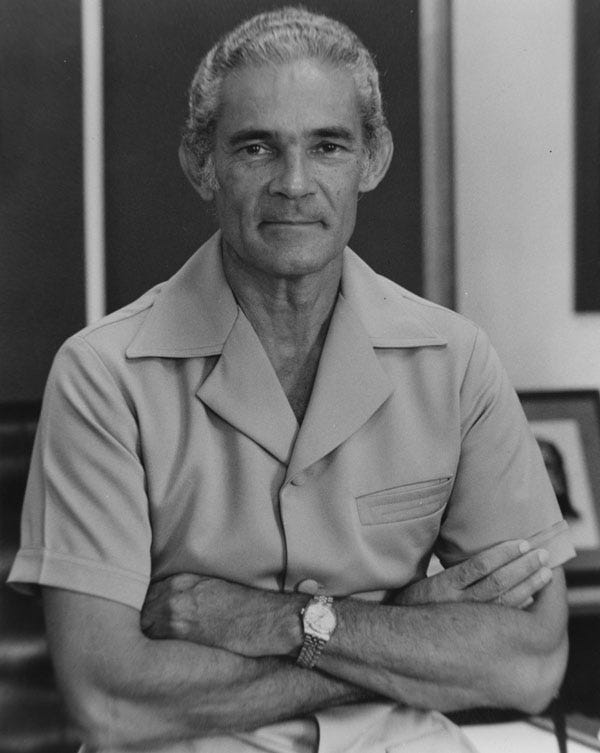
Michael Manley was a statesman, three-term prime minister and father of democratic socialism in Jamaica. He was the son of Norman Manley, the Jamaican prime minister who brought independence to the island in the 1950s. The Manleys were a mixed race family, and Norman Manley was one of the best lawyers on the island during the push for independence. Michael, no doubt, learned everything he knew from his father. But democratic socialism was his own pet project. While his father led the island to independence through a consortium of lawyers in the People’s National Party (PNP), Michael would try an experiment to take the country leaps forward in what he hoped would become a post-capitalist world. He introduced his style of social democracy and and would lead Jamaica through some of their worst times. Before we get to those reforms, we need a quick background of Manley before he became a statesman.
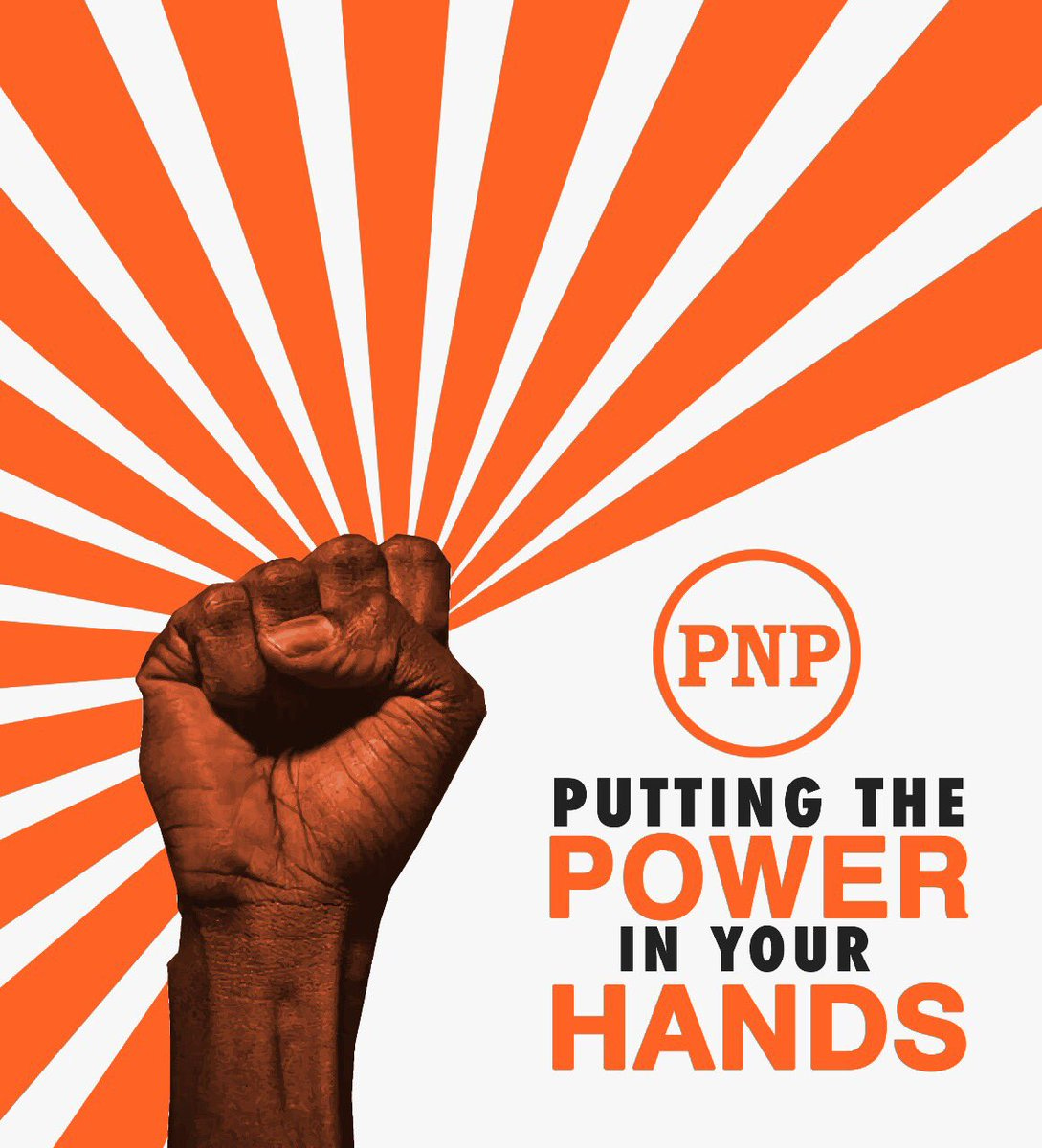
Manley was born in 1924 in St. Andrew Parish, Jamaica. He went to college in Jamaica and then enrolled in the Canadian Air Force during WWII. After the war, he studied at the London School of Economics, where he would get his first taste for politics and star on the debate team. His father while already being a lawyer in the PNP, encouraged him to get involved in the trade union movement. By 1972, after serving in the Jamaican Senate for 10 years, Manley won the 1972 election over Hugh Shearer, the incumbent center-right president. The election was a landslide and but didn’t completely shock the intelligentsia who knew that Manley’s name recognition would be a benefit. The PNP won 37 of the 53 Senate seats and Manley would not have to form a coalition government of center-right and left-center constituencies. He was free to rule as he pleased and implement the social democratic reforms that were so greatly needed.

Manley’s political philosophy was to mix socialist welfare policies with western-style social democratic institutions, similar to Olof Palme’s Swedish Democratic Party (SDP) in the 1960’s and 1970’s or Bernie Sanders’s 2016 and 2020 platforms. Manley admired the Nordic Model and could see how 30 years of SDP rule, gave Sweden the most generous welfare state in the developed world by the time he was president. Manley’s trade unionist background led him to understand the plight of poor Jamaican peasants and Rastafarian outcasts. He would not have gotten that real-world education if he grew up in the colonial political bubble. He was able to bypass his father’s name recognition and carve out a legacy for himself. First and foremost, Manley needed to reform the socio-economic conditions of millions of poverty-stricken Jamaicans. Jamaica led the Caribbean nation states in inequality by the 1970’s. Their fight for independence consisted of a long de-colonization period. British officials and multinationals still controlled much of the land in the country that was designated for the sugar trade. While the postwar boom in Jamaica did lead to an increase in its GDP, it didn’t bring social or economic equality. Jamaica was still in a post-colonial phase and tied down with foreign debt. It was a highly inegalitarian society. So Manley decided to begin his tenure by establishing a minimum wage. This hadn’t been done in any other Caribbean country. In 1974, he proposed a free education from the primary school level to the university. This was another reform that was never attempted before. Publicly available schooling was seen as costly and a threat to the authoritarian regimes that controlled much of the Caribbean and Latin America. It went further than Bustamente or Shearer were willing to go during their tenures when they increased literacy. Manley’s early tenure not only increased literacy rates even further but his school reforms led to 85% of the island receiving a proper primary education. Manley felt that the time period presented some unique opportunities to expand even further with his reforms.
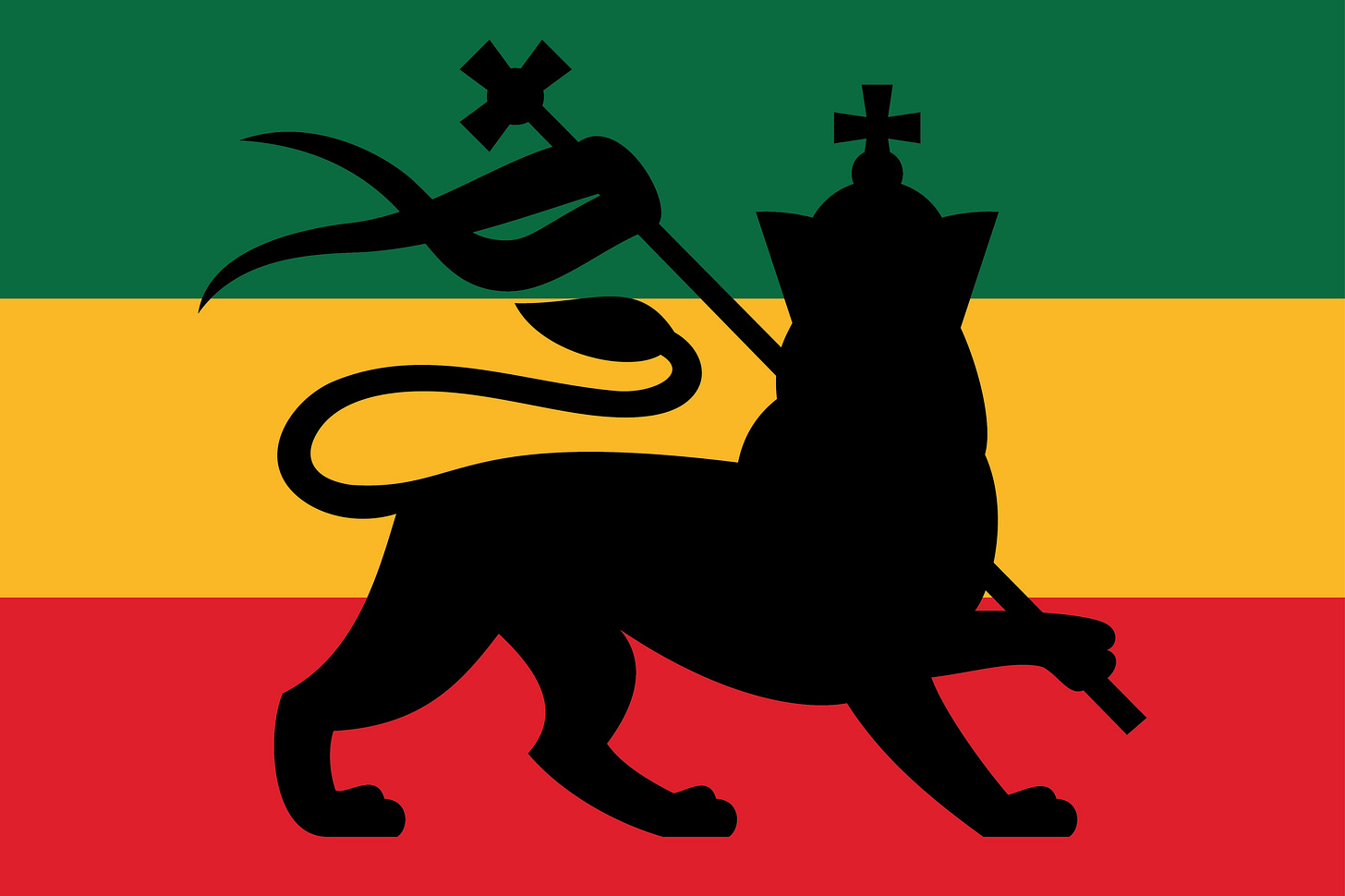
The 1960’s were rife with social agitation and mass civic engagement. In the UK, France and America, a younger and burgeoning generation was attempting to change the established system. This would have a profound effect on Manley because he believed a small island like Jamaica would be able to handle social democratic reforms at a more incremental pace. That’s why his most ambitious project, also gave him the most in trouble both domestically and abroad. Land reform would be that project. Land tenure in Jamaica was extremely inequitable for most of the island’s history. Manley would introduce Project Land Lease in 1973 as an attempt to fundamentally change that dynamic. It attempted an integrated rural development approach that would have tens of thousands of small farmers given land, technical advice and access to banking credit. It’s estimated that about 15% of idle (unused) land was redistributed through Manley’s program within the first 2 years of its infancy stage. This rapid egalitarian redistribution of land was most important for small farmers, many of whom were Rastafarians. They grew marijuana in the hills and often had no market in which to sell their goods since marijuana was still illegal. The Rastafarians were discriminated against for over a century by British colonial officials. Their dreadlocks and public marijuana smoking, was not understood by the British who didn’t see it as a religion. They were not given positions in government and were often the poorest class in Jamaica. Manley would make many friends in the Rastafarian community and they would help him in his run for re-election (as we will see later). The popular PNP slogan, “A government of truth” was born out of the fact that Manley’s Project Land Lease was so successful for many poorer Jamaicans. A healthy society would not have been possible with that much concentration in land capital.
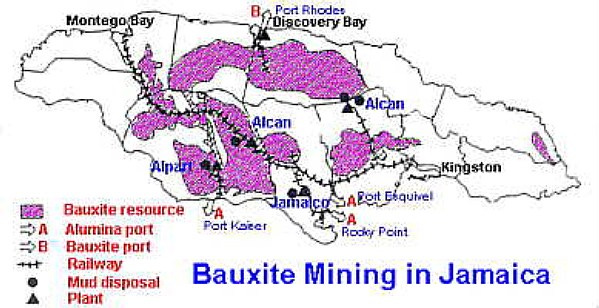
With the land reform project, came scorn from the international bauxite companies who had been mining bauxite in Jamaica for the past 50 years without hardly any government regulation. Many of these mines were gifted through no-bid contracts and much like as in the case of the Banana Republics of Central America, it was a form of exploiting the masses. Jamaicans saw it that way as well. Manley would continue to fight the bauxite companies and provide jobs for Jamaicans while threatening a few times along the way to nationalize the mines. Before he could consider doing that, he had more reforms to push through. By 1974, the literacy program was up and running and he then lowered the voting age to 18. He followed that up with abolishing the “Masters and Servants Act” which made labor relations more fair. The law was initiated in 1823 for the UK and all of their future colonies. It was designed to regulate relations between employer and employee (really it was forced laborer vs employer). This abolition made labor relations more egalitarian and changed the way that trade unions operated on the island. It gave them enhanced rights, bargaining power and voting share. No longer did they have to operate in the shadows. During the period of 1973-74, Manley also introduced equal pay for women, a workers’ participation program and subsidized meals.
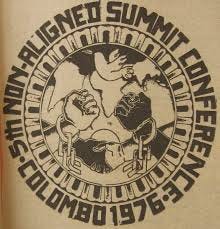
Manley’s foreign policy was clear. He favored solidarity with the global south, cooperation with the Non-Aligned Movement (NAM) and was even a keynote speaker at a NAM conference in 1976. He maintained close ties with Julius Nyerere (who he modeled his land reform program after), Olof Palme, Fidel Castro and Pierre Trudeau. It wasn’t as much as the internal social democratic policies that bothered the US State Department, as it was Manley’s friendliness with Castro and NAM. With the recent OPEC oil crisis, the drop of the US dollar and the other financial changes in the 1970’s, Manley was under a lot of pressure to fall in line and not further his socialist reforms. There was thought within the US State Department under Kissinger, that Manley and Castro could spread “communism” throughout the Caribbean. The idea was to never allow that spark to happen. Luckily, Manley largely escaped the ire of the US State Department.
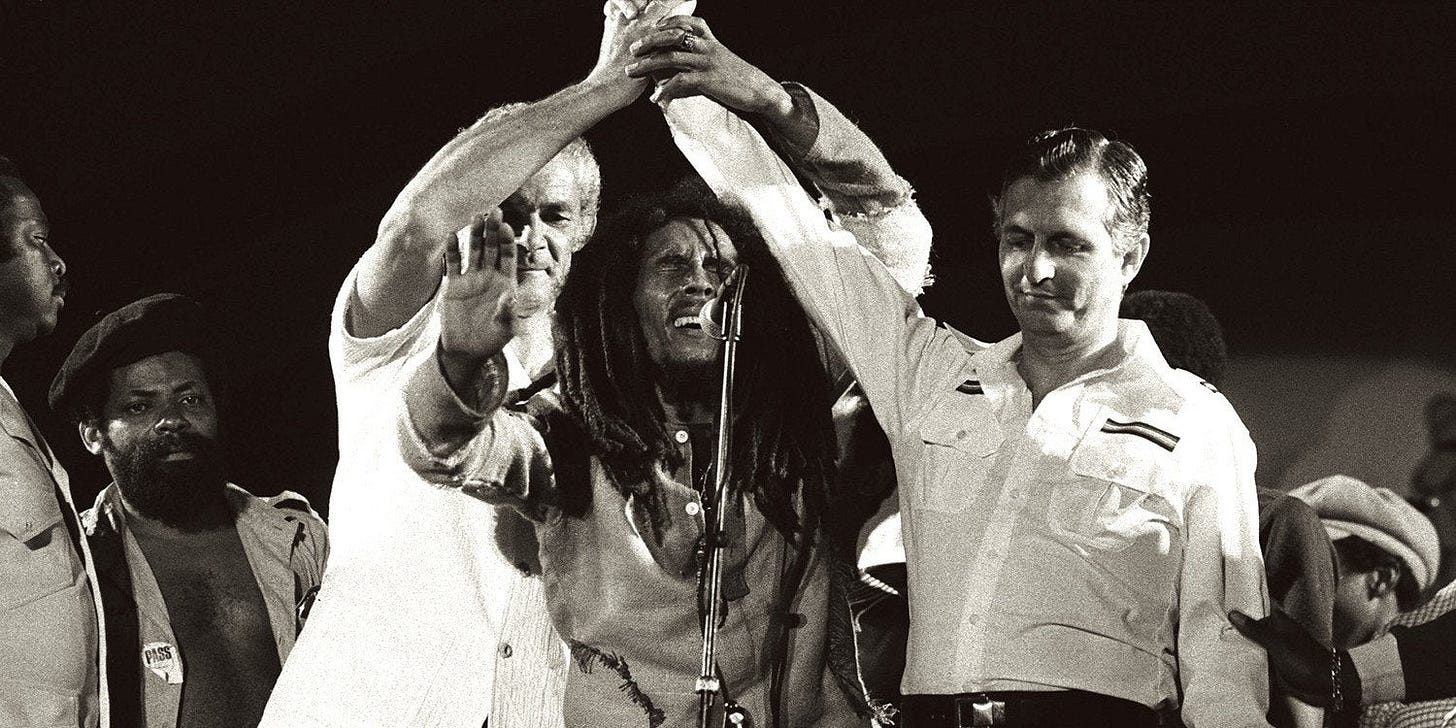
The internal divisions though would be a problem for Manley. By the late 1970’s Jamaica was experiencing a lot of violence. The supporters of Edward Seaga, who would be Manley’s opponent in the 1980 election, engaged in bloody street battles with Manley’s supporters in the PNP. This violence largely started after the 1976 election but ramped up before 1980. Seaga’s Jamaican Labor Party (JLP) was a conservative party modeled after Bustamente’s rule. Seaga himself was not a favor of Manley’s social democratic reforms and was clearly under the thumb of Washington. Seaga wanted to institute neoliberal reforms, much the same as Pinochet’s in Chile. The incoming Reagan administration wanted to see Jamaica fall back into Washington’s orbit. Another factor involved in this war between the JLP and PNP is the drug issue and the gangs that controlled the drug trade on the island. Seaga’s own body guard was a drug lord and many of the Shower Posse’s earliest members were on Seaga’s payroll. Lester Coke was also involved in the JLP and one of Seaga’s closest advisors. Coke was a drug lord, leader of the Shower Posse and father to future drug lord, Christopher “Dudas” Coke, who would be arrested in Kingston in 2010, in what would become an international drama. Tensions were at an all time high between Seaga and Manley by 1978 when the “One Love” concert was performed by Bob Marley. Marley (who became friends with Manley in the early 1970’s), wanted to bring Seaga and Manley together. So while on stage he brought Seaga and Manley out to hold hands together in the air, in what would become an iconic picture in Jamaican history. While the visual symbolism of two opposing politicians coming together was nice for the moment, it didn’t alter reality on the ground. The two sides hated each other and it would all come to a head in the 1980 election. Seaga won the election and Jamaica’s political trajectory would change forever.

In 1989, Manley ran again. Jamaicans saw 8 years of Seaga’s excitement for private enterprise and neoliberal trade policies, and they didn’t like it. Prices on consumer goods were high and there was more drug violence than ever before. The cocaine trade took off and Jamaica became a pit stop for Columbian traffickers. Manley won the election in 1989 and would serve one more term. By this time, the international political landscape had changed. Thatcher in the UK and Reagan in the US, had ushered in a whole new era of neoliberalism and globalized trade. Social democratic reforms would now be met with violence (as was seen in Grenada and Nicaragua). Manley was now ready to bend the knee to Washington and would change some of his stances. He said there was now room for private enterprise and he softened his socialist rhetoric. This frustrated many longtime socialists within the PNP but they knew that Manley was trying to toe the line. By this point late in his life, he had a much better idea of what was feasible and what wasn’t.
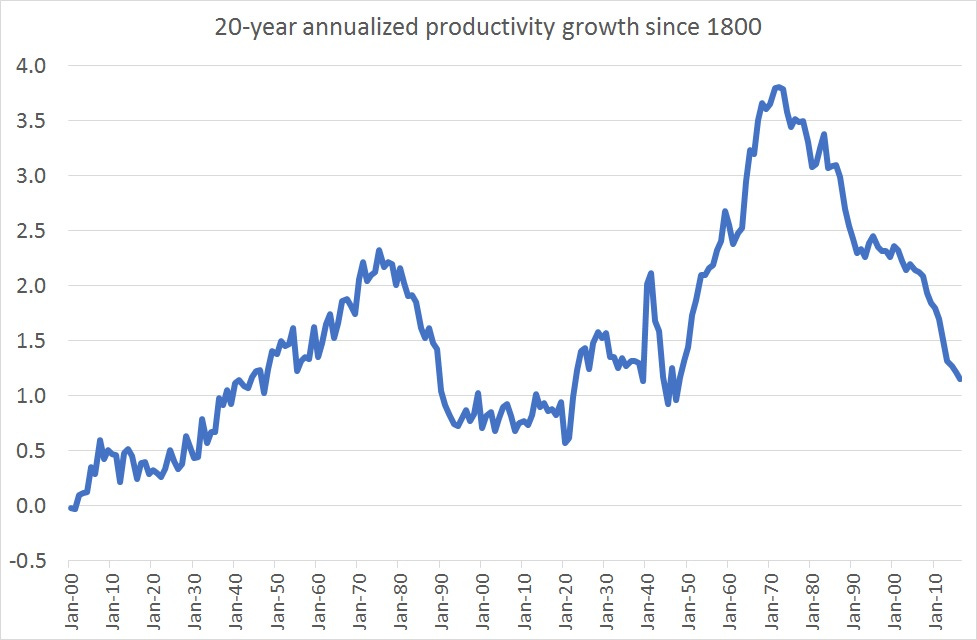
Manley was a jovial statesmen. He was always willing to give a TV interview. He wore a Kariba suit (two-piece suit for both business and formal occasions) and made government workers dress down as well. They could wear a Kariba or something even less formal. He also required government servants to trade in their government-issued Mercedes and drive cheaper cars. He abolished the requirement for men to wear ties and jackets, thus entrenching his “every man” image even more. He moved easily across all social strata and he attributes that to his father. While many of his reforms didn’t last, his legacy will live on. He showed what was possible in Jamaica, a country of limited resources that relied on tourism and bauxite mining. His agrarianism fit perfectly with the largely mountainous and rural countryside of Jamaica. He was a product of the time period though, and by that I mean the birth of neoliberalism. The market forces were outside of his control and the conservative revolution in the US and the Thatcherites coming to power in the UK, brought the hammer down on Manley and fueled the rise of Seaga. It is important to understand this dynamic when evaluating Manley’s legacy. What could have happened if the global trends were reversed? What would Jamaica look like now? We will never know. But what we do know is that the legacy of Michael Manley lives on through the still-existing welfare state that Jamaica has to this day.



